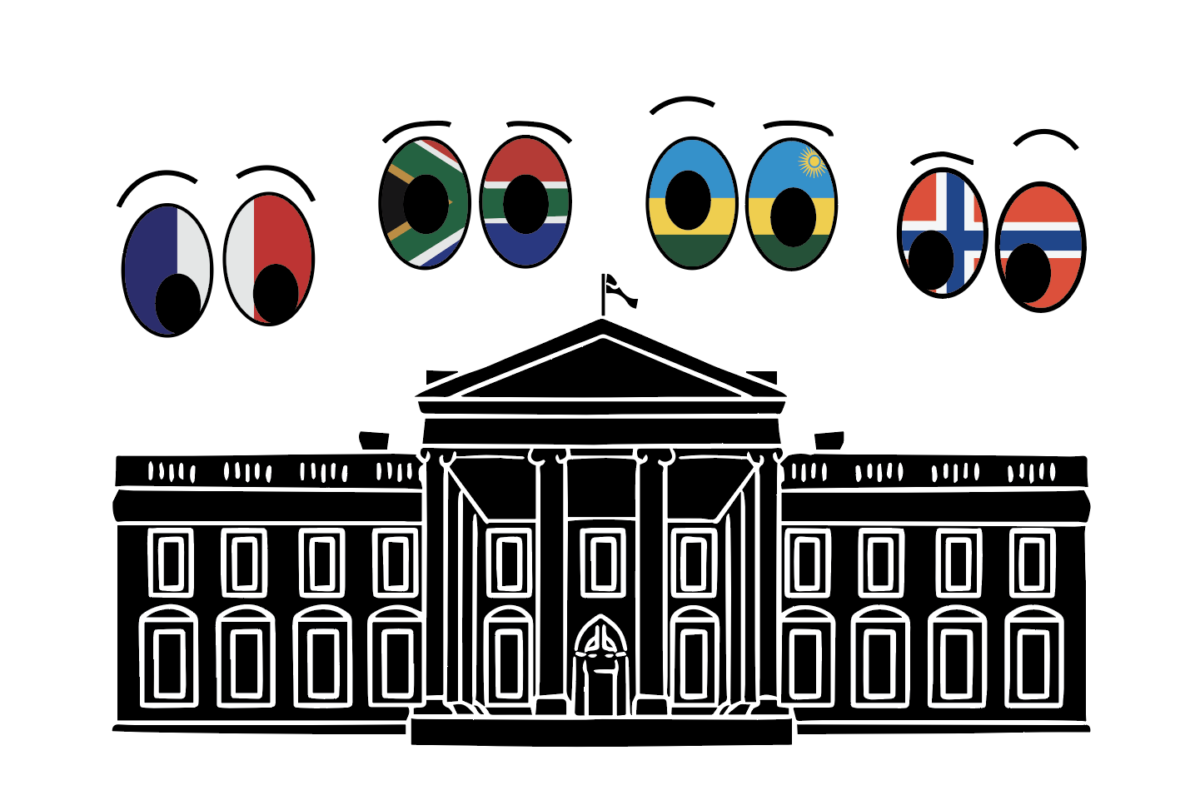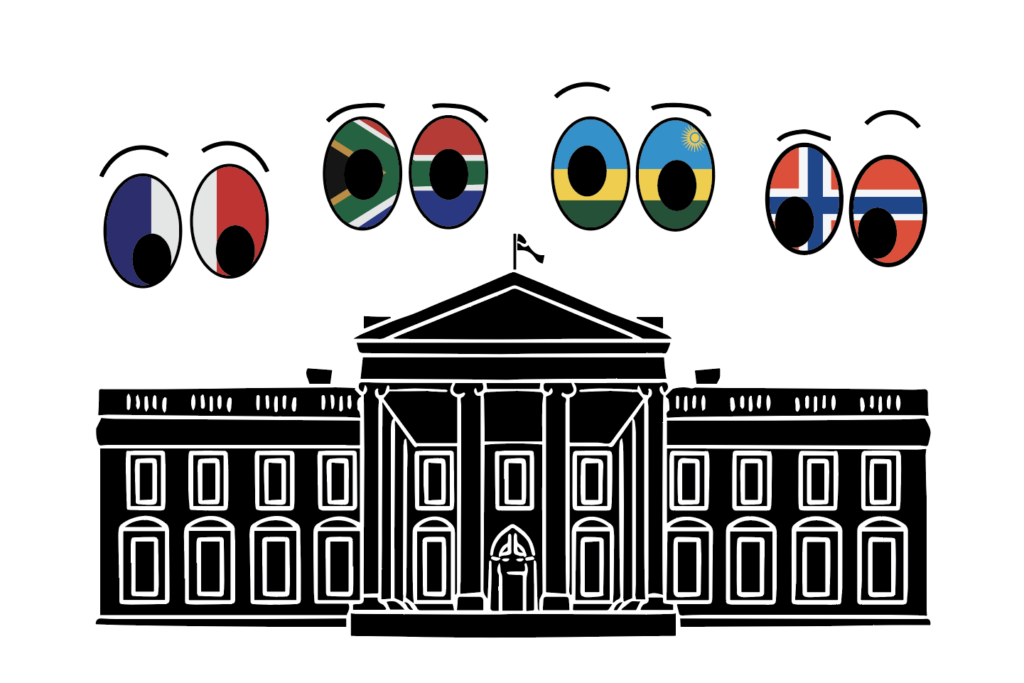
Maggie Flanagan | News and Sports Editor | mflanagan6@mail.smcvt.edu

For many international students at St. Michael’s College, the polarization and chaos of American politics are very different from their home countries.
Maggie Frøland, ‘25, from Rælingen, Norway is an economics and international relations double major, and spent the summer interning in Washington, D.C. The two statements Frøland uses to describe American politics are: “Two- parties? What!” and “So polarized.”
“You actually have family members of two different parties that don’t talk to each other,” said Frøland. “That’s polarization.”
“There’s just so much negativity,” said Frøland. She has noticed that Americans pick hot-button topics like free speech or identity politics and go in that direction. “What about the policies? Does it affect people? How does this work in reality? No, you just shoot it away with the problem or the issue.”
Simon Lunholm, ‘26, from Le Luc, France, said there is a contrast between American and French politics. Lunholm said people in his home country will see headlines but do not stay up to date on U.S politics unless they have an interest, or like him, spend time with Americans.
Tristan Du Plessis, ‘24, from Rustenburg, South Africa, is exposed to American politics through his roommate. “I would say, because of him, I’m informed, but that also exposes me to being a little bit biased, because obviously, he has his own beliefs.”
“I’ve seen him these last couple of weeks getting a lot more nervous and anxious for what’s coming up,” said Du Plessis.
Olivier Niyonshuti, ‘25, from Kigali, Rwanda, is an international relations major, so he followed the election closely in political science classes. “The political system in America is more divided,” said Niyonshuti.
“Back home, I might not agree with someone about a political opinion, but at the end of the day you are neighbors,” said Niyonshuti. “You are always going to come together, and have something in common.”
“You actually have family members of two different parties that don’t talk to each other … that’s polarization”
Maggie Frøland, ’25, from Rælingen, Norway
“As an international you kind of see America as the land of opportunity,” said Du Plessis. “A lot of people want to come here and make it big time.”
During his campaign, Trump has repeated his stance on reducing immigration. “I know that Trump, for me as a European, he has a very conservative view, and he has talked in the past about having less people into the country,” said Lunholm. “I’ve always thought Trump wasn’t the best for me, or for all internationals.”
“Your politics in general are much farther right than ours,” said Frøland. “I have strong opinions here. In a way, Trump, for me he’s not a not a serious politician. He’s a felon, he’s a liar, he’s a bad person, he seems old and not coherent,” said Frøland.
Froland believes that social media’s role in the election has been important in reaching young voters ages 18-25. “My impression is that they have made Kamala much more appealing to the young crowd because of TikTok,” said Frøland. “I see her as a power woman.”
“I studied in France a little bit, the last election, when Trump won in 2016,” said Lunholm. “How he used social media, like ads. It wouldn’t be the same in all the states. Depending on where you’d be, you’d have different ads,” said Lunholm.
Being in the United States, “it’s all over without even looking it up, but you’ll see exactly what they want you to see,” said Lunholm.
“If I go on my phone, I’m not even following any of this and it just pops up. I don’t want to see this, I can’t even vote,” said Du Plessis.
Niyonshuti agreed that the role of social media in the election is unhinged, and flooded by propaganda. “I don’t believe anything I see on social media,” said Niyonshuti.
With a potential Trump re-election, Frøland is concerned about international conflicts, like the war in Ukraine. “In the past four or five years, we’ve seen a return of war in the world,” said Frøland. “We are neighbors with Russia, we think a lot about international security.”
“Basically half of Europe has been lobbying with the Republicans and Trump for a while in case he will go to power so that he will be favorable to NATO,” said Frøland.
“I feel like the world we are living in right now, we need a president who is going to come and make a difference,” said Niyonshuti. “Making a difference means finding a way to stop all these wars from happening.”
“It would be so naive to say, maybe somebody is going to come and end the wars, but they need to at least sit-down and see the main issues that are causing those wars,” said Niyonshuti.
Ultimately, “one of my biggest fears coming into this election is thinking, if Trump wins, we will have four more years with him holding the nuclear button,” said Frøland.

